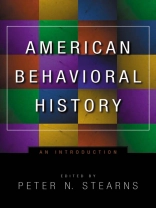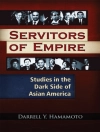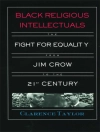From his founding of The Journal of Social History to his groundbreaking work on the history of emotions, weight, and parenting, Peter N. Stearns has pushed the boundaries of social history to new levels, presenting new insights into how people have lived and thought through the ages. Having established the history of emotions as a major subfield of social history, Stearns and his collaborators are poised to do the same thing with the study of human behavior. This is their manifesto.
American Behavioral History deals with specific uses of historical data and analysis to illuminate American behavior patterns, ranging from car buying rituals to sexuality, and from funeral practices to contemporary grandparenting. The anthology illustrates the advantages and parameters of analyzing the ways in which people behave, and adds significantly to our social understanding while developing innovative methods for historical teaching and research.
At its core, the collection demonstrates how the study of the past can be directly used to understand current behaviors in the United States. Throughout, contributors discuss not only specific behavioral patterns but, importantly, how to consider and interpret them as vital historical sources.
Contributors include Gary Cross, Paula Fass, Linda Rosenzweig, Susan Matt, Steven M. Gelber, Peter N. Stearns, Suzanne Smith, Mark M. Smith, Kevin White.
关于作者
Peter N. Stearns is Provost and University Professor at George Mason University. Since 1967, he has served as editor-in-chief of The Journal of Social History. His numerous books include World History in Documents; American Behavioral History; and Anxious Parents.












